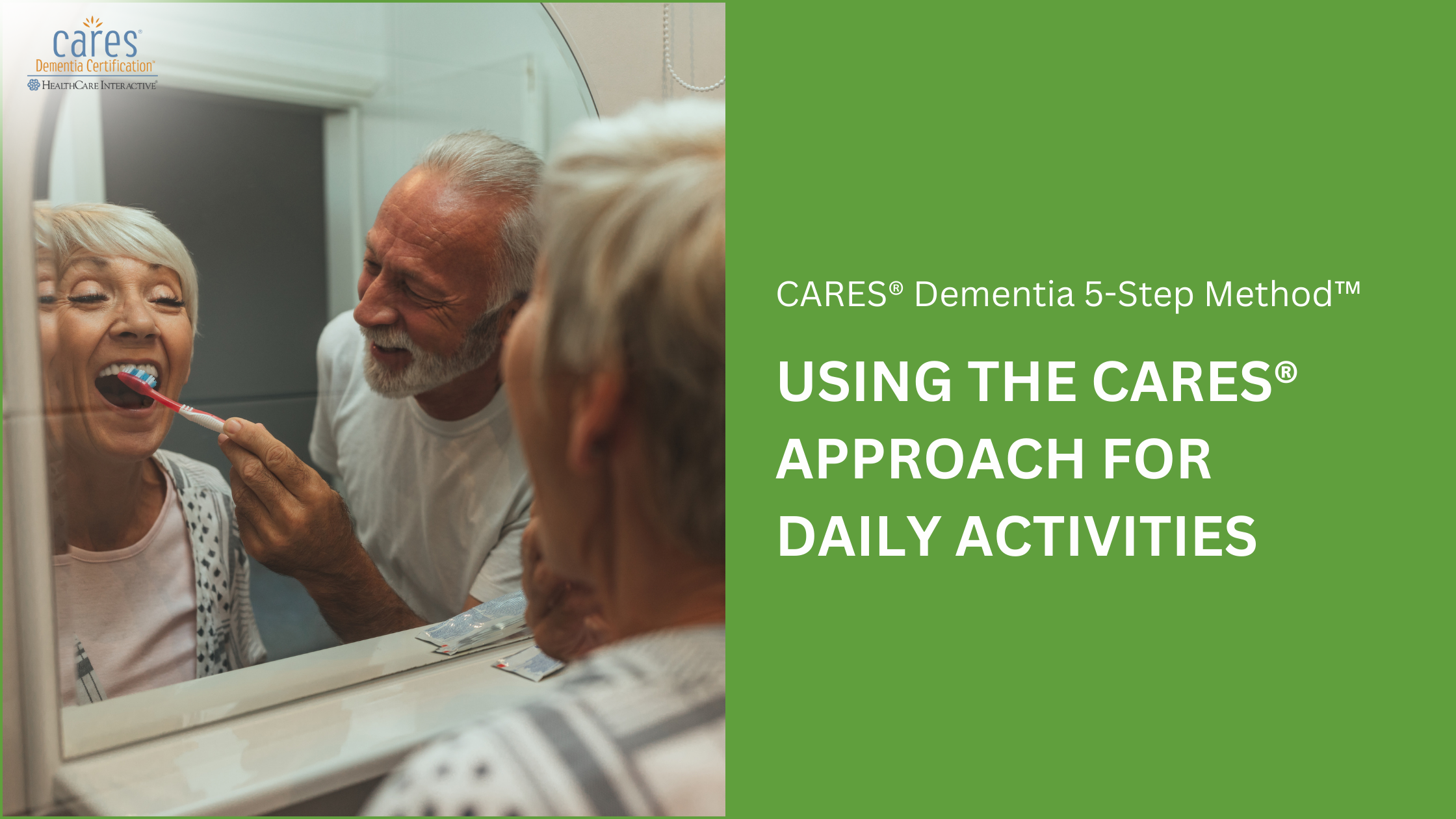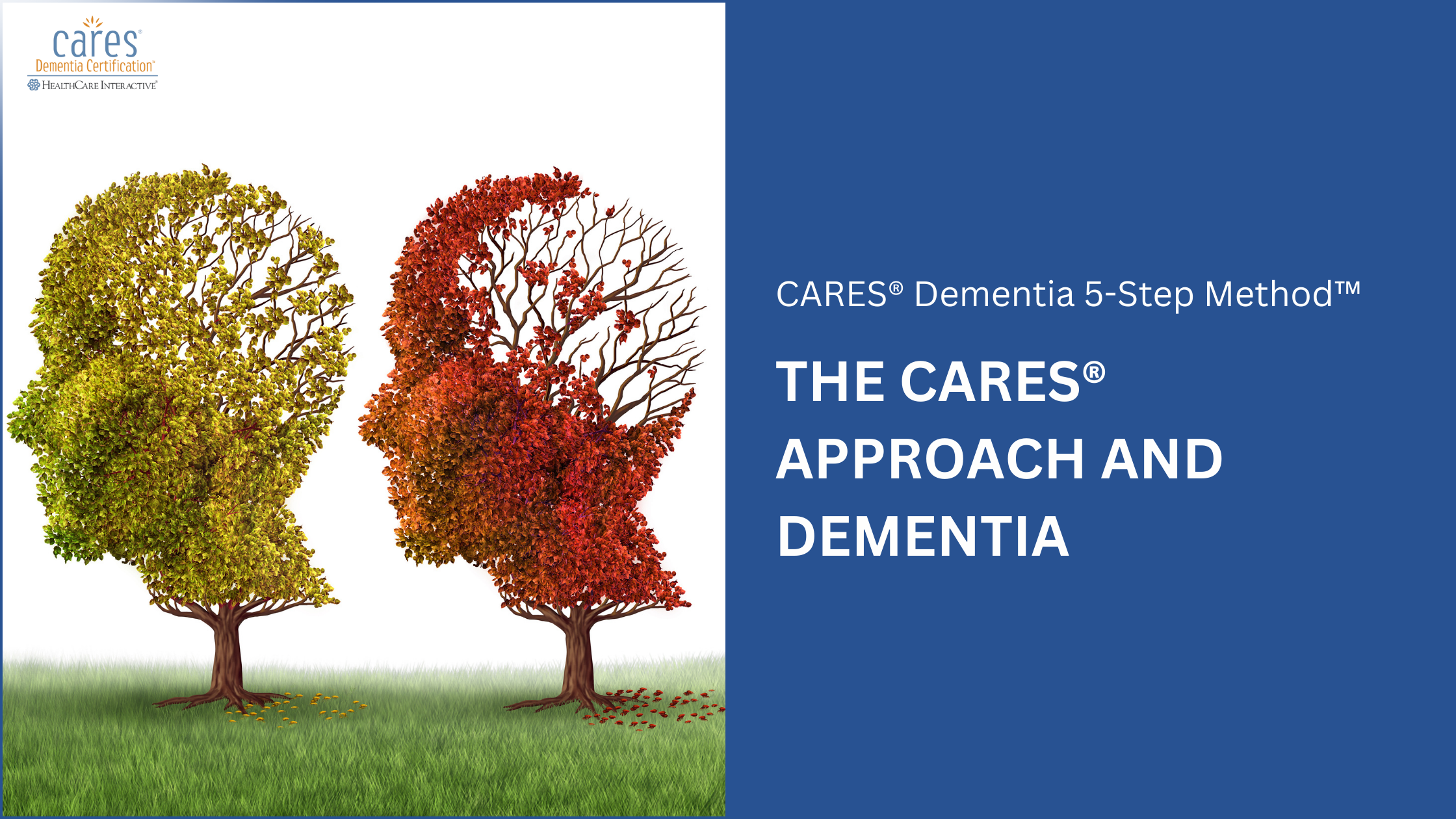For people with dementia, everyday tasks can become challenging. Familiar items like a toothbrush or comb can cause confusion, and performing routine activities may feel overwhelming. As a caregiver, you have the opportunity to make a significant difference by using the CARES® Approach. This approach helps guide you in providing the right support, making dementia activities of daily living easier and more manageable, while also preserving the person’s dignity and sense of independence.
Eating
Maintaining good nutrition is key to health, but dementia can make eating feel unfamiliar. With the CARES® Approach, you can help the person continue enjoying their meals, ensuring they get the nutrition they need, even in later stages of Alzheimer’s. This is an important aspect of dementia activities of daily living.
Dressing
As dementia progresses, knowing how much help to provide can be tricky. By understanding the person’s abilities at each stage, you can support them in dressing by turning it into a meaningful, guided activity. Familiarity and comfort can make all the difference.
Grooming
Grooming routines like brushing hair or shaving may seem simple, but they can be important for maintaining dignity. With dementia, the person may need more assistance, but you can help them retain a sense of normalcy by allowing them to do as much as possible.
Bathing
Bathing can be both relaxing and overwhelming. To ease any discomfort, make sure the environment feels calm and familiar. If the person resists, consider alternatives like sponge baths, keeping them clean and comfortable without added stress.
Mouth Care
Proper oral hygiene helps prevent infections, but dementia can make mouth care feel uncomfortable or confusing. Use the CARES® Approach to provide gentle, familiar support, ensuring the person’s comfort and oral health.
Using the Bathroom
As dementia progresses, using the bathroom independently may no longer be possible. A respectful, patient approach helps maintain dignity and comfort while preventing infections and other health issues. The CARES® Approach ensures you provide the right support at every stage.
Person-Centered Personal Care
Person-centered care for dementia is all about knowing someone’s preferences and using them to make their daily routine smoother. Here’s an example—there’s a person who showers in the morning, never at night. He starts his day with coffee and loves feeding the birds outside. If you’re his caregiver and you know this, you can use it to your advantage.
Many caregivers struggle with people refusing to bathe. But the first question should be: When do they usually shower? If someone tried to bathe him at night, he would resist—because he already showered in the morning. But if you scheduled it for his preferred time, there’d be no issue. And if you made him coffee first? Even better.
This approach applies to every aspect of personal care. Some people love showers, while others feel cleaner after a bath. For someone with dementia, forcing them into a shower when they’re used to baths can cause distress. It’s not just about keeping them clean—it’s about providing a routine that feels comfortable and familiar. By using dementia personal care strategies, caregivers can tailor each task to fit the person’s unique needs and preferences.
Would you like to earn your certification in CARES® Dementia 5-Step Method?
Start now and gain access to Module 1 for free at www.hcinteractive.com/5StepDemo.
Don’t miss out—this limited-time offer is available now!


